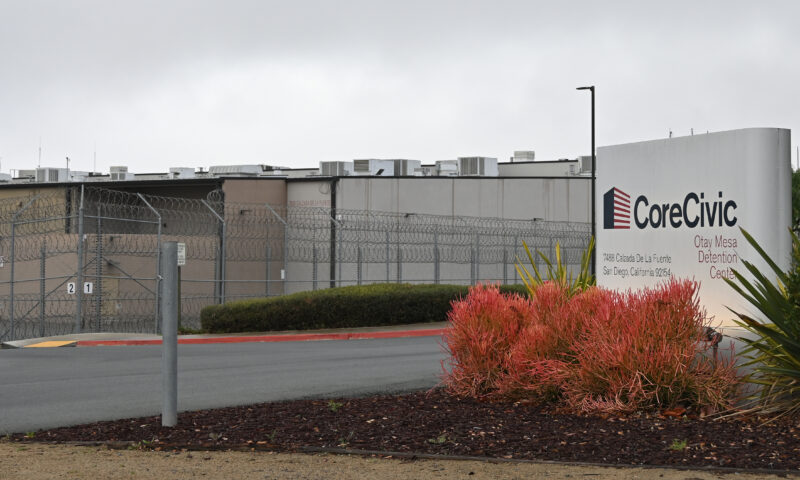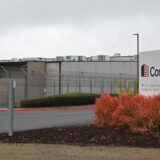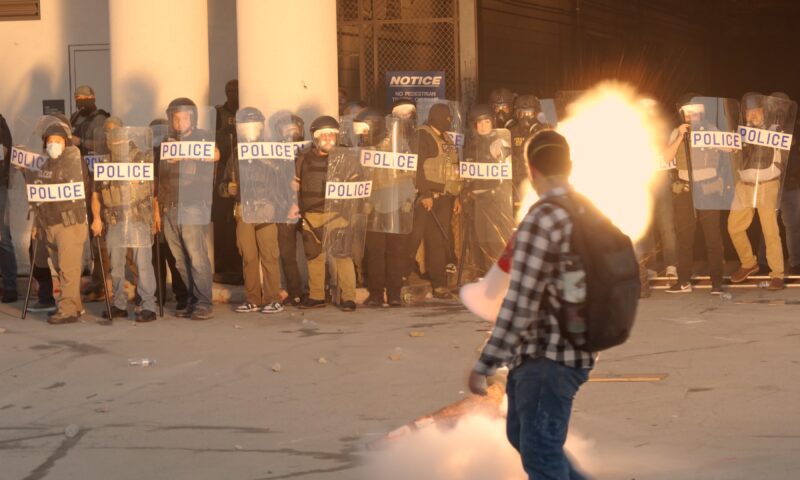Labor & Economy
CalChamber's 'Job Killers' List Returns

It happens every spring: The start of baseball season and the Chamber of Commerce’s assault on legislation designed to improve the lives of Californians – many of them our most vulnerable residents. The CalChamber lobbies against legislation year-round, of course, but brings out its biggest bat in the form of its Job Killer list – a lineup of bills that are demonized as wasteful, overreaching, unfair, etc. The list is a remarkably effective tool and accounts for the chamber’s astronomically high batting average – last year it went 25 for 27 in its efforts to stop “job-killing” legislation. Many a bill that seemed a shoo-in to become law has suddenly found itself permanently stuck in some committee, or vetoed whenever the Chamber persuades the governor to play the role of Mr. September for corporate interests.
Last week the CalChamber released its “preliminary” list of Job Killers. Here are some of them, including part of the bills’ descriptions from the legislative counsel, followed by the worst curses the Chamber could think of to hurl at them.
1. AB 357 Fair Scheduling Act (Chiu; D-San Francisco)
The Gist: “The bill would require a food and general retail establishment, as defined, to provide its employees with at least two weeks’ notice of their schedules.”
Chamberspeak: “Unfair.”
2. SB 3 Minimum Wage Increase & Indexing (Leno; D-San Francisco/Leyva; D-Chino)
The Gist: “This bill would increase the minimum wage, on and after January 1, 2016, to not less than $11 per hour, and on and after July 1, 2017, to not less than $13 per hour. The bill would require, commencing January 1, 2019, the annual automatic adjustment of the minimum wage to maintain employee purchasing power diminished by the rate of inflation during the previous year.”
Chamberspeak: “Unfair.”
3. SB 406 Expansion of California Family Rights Act (Jackson; D–Santa Barbara)
The Gist: “It is an unlawful employment practice for an employer to refuse to grant a request by any employee with more than 12 months of service with the employer, and who has at least 1,250 hours of service with the employer during the previous 12-month period, to take up to a total of 12 workweeks in any 12-month period for family care and medical leave.”
Chamberspeak: “Creates less conformity with federal law” and “increas[es] costs and risk of litigation.”
4. AB 465 Forced Arbitration Agreements (Hernández; D-West Covina)
The Gist: “This bill would require the waiver of any legal right, penalty, forum, or procedure for specified employment law violations to be knowing, voluntary, and in writing. The bill would prohibit such a waiver from being made as a condition of employment and would provide that any such waiver required from an employee or potential employee as a condition of employment or continued employment is unconscionable, against public policy, and unenforceable.”
Chamberspeak: “Significantly drives up litigation costs for all California employers.”
5. SB 350 Clean Energy and Pollution Reduction Act of 2015 (de León; D-Los Angeles)
The Gist: “To increase [by the year 2030] from 33 percent to 50 percent the procurement of our electricity from renewable sources. To reduce today’s petroleum use in cars and trucks by up to 50 percent.”
Chamberspeak: “Unrealistic.”
6. ACA 4 Lowers Vote Requirement for Tax Increases (Frazier; D-Oakley)
The Gist: “Would provide that the imposition, extension, or increase of a special tax by a local government for the purpose of providing funding for local transportation projects, as defined, requires the approval of 55 percent of its voters voting on the proposition.”
Chamberspeak: “Adds complexity and uncertainty to the current tax structure.”
7. SB 684 Publicly Held Corporation Tax Rates (Hancock; D-Berkeley)
The Gist: This bill would, for taxable years beginning on and after January 1, 2015, revise [the] rate for taxpayers that are publicly held corporations, as defined, and instead impose an applicable tax rate from 7 percent to 13 percent, or for financial institutions, from 9 percent to 15 percent, based on the compensation ratio, as defined, of the corporation. This bill would increase the applicable tax rate by 50 percent for those taxpayers that have a specified decrease in full-time employees employed in the United States as compared to an increase in contracted and foreign full-time employees, as described.
Chamberspeak: “Threatens to significantly increase the corporate tax rate on publicly held corporations and financial institutions.”
8. SCA 5 Special Taxes: Voter Approval (Hancock; D-Berkeley)
The Gist: “This measure would condition the imposition, extension, or increase of a special tax by a local government upon the approval of 55 percent of the voters voting on the proposition, if the proposition proposing the tax contains specified requirements.”
Chamberspeak: “Adds complexity and uncertainty to the current tax structure.”
9. AB 1490 Limits “Fracking” in Earthquake-Sensitive Areas (Rendon; D-Lakewood)
The Gist: “This bill would prohibit a well operator from conducting a well stimulation treatment following the occurrence of an earthquake of magnitude 2.0 or higher on a well that is within a radius of an unspecified distance from the epicenter of the earthquake until the Division [of Oil, Gas, and Geothermal Resources] completes a certain evaluation and is satisfied that the well stimulation treatment does not create a heightened risk of seismic activity.”
Chamberspeak: “Drives up fuel prices and energy prices.”
10. AB 356 Oil and Gas/Groundwater Monitoring (Williams; D-Santa Barbara)
The Gist: “Require[s] a well operator to implement a monitoring program for belowground oil production tanks and facilities, and disposal and injection wells. Because a failure to comply with this requirement would be a crime, this bill would impose a state-mandated local program.”
Chamberspeak: “Jeopardizes high-paying middle class jobs.”

-

 Latest NewsJune 17, 2025
Latest NewsJune 17, 2025A Coal Miner’s Daughter Takes on DOGE to Protect Miners’ Health
-

 Beyond the BorderJune 10, 2025
Beyond the BorderJune 10, 2025Detained Man Says ICE Isn’t Treating His Colon Cancer
-

 Column - State of InequalityJune 5, 2025
Column - State of InequalityJune 5, 2025Budget Cuts Threaten In-Home Assistance Workers and Medi-Cal Recipients
-

 Column - State of InequalityJune 12, 2025
Column - State of InequalityJune 12, 2025‘Patients Will Suffer. Patients Will Die.’ Why California’s Rural Hospitals Are Flatlining.
-

 Column - California UncoveredJune 18, 2025
Column - California UncoveredJune 18, 2025Can Gov. Gavin Newsom Make Californians Healthier?
-

 Featured VideoJune 10, 2025
Featured VideoJune 10, 2025Police Violently Crack Down on L.A. Protests
-

 Latest NewsJune 4, 2025
Latest NewsJune 4, 2025Grace Under Fire: Transgender Student Athlete AB Hernandez’s Winning Weekend
-

 Striking BackJune 3, 2025
Striking BackJune 3, 2025In Georgia, Trump Is Upending Successful Pro-Worker Reforms

